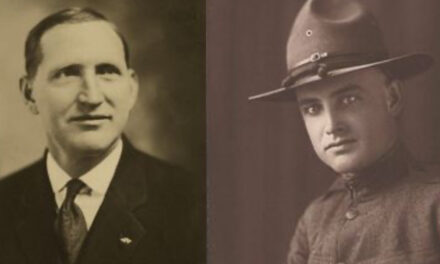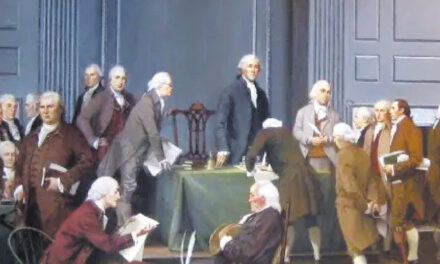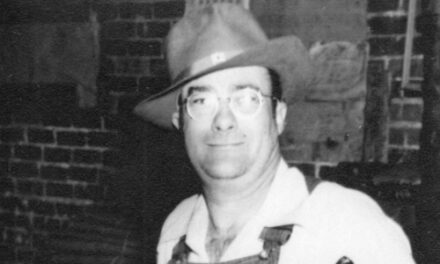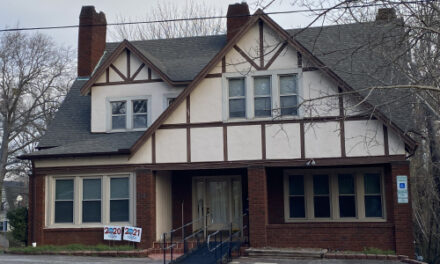
When Albert Spurlock arrived in Hickory in the summer of 1924, he took the train down from Ohio, just another kid hoping to make the football team at Lenoir-Rhyne. By the time he was a senior, coach R.N. Gurley was building his whole team “around the mighty Albert Spurlock.” A tremendous ball carrier for the “Mountain Bears,” as the team was called then, he led not only the team, but the entire state of North Carolina in scoring (he had twice as many points as the next player) and was the team kicker, “credited with punts as long as 87 yards in the air.” But it turned out that “Spur” was much more.
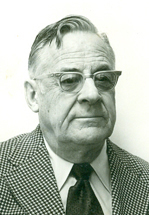
Albert Spurlock, 1977
After sitting out much of the 1925 football season with an injury, Spur, as friends and fans called him, had an ambitious idea. L-R was not planning to attend a track meet but Spur asked if he could go and represent the school single-handedly. The track coach told him there was no money to do so.
“What if I pay my own way?” Still the coach was uncertain, but saw no objection. He then asked, “do you have the money?” Spur didn’t but assured the coach that he could get it from his friends.
When he arrived at the meet, officials were dubious. With dropped jaw, they asked if he intended to compete in a full list of events. They went on to lecture him, saying “it would take a Hercules, and you must remember that the reputation of your college is at stake.” In reply, he smiled, then said, “I think I’m a pretty good athlete, though of course, I’m not Hercules.” At that track meet, Albert Spurlock went on to take “more events single-handedly than entire teams from some of the much larger colleges.”
But even that feat does not really capture who Spur was. Wake Bridges wrote about Hickory’s Hercules for the Hickory Daily Record. He noticed that Spurlock did not allow “his stardom as an outstanding athlete in several sports to interfere with his own higher education.” During a team trip to Florida, Spur pointed out numerous historical sites. Bridges was impressed that instead of sleeping or telling “ribald jokes” as some of the players did, Spur “was attempting to make the football trip of value, educationally.” As important as sports had been to Albert Spurlock, he sought to answer an intellectual calling, far beyond the physical gifts he was given as a young man.
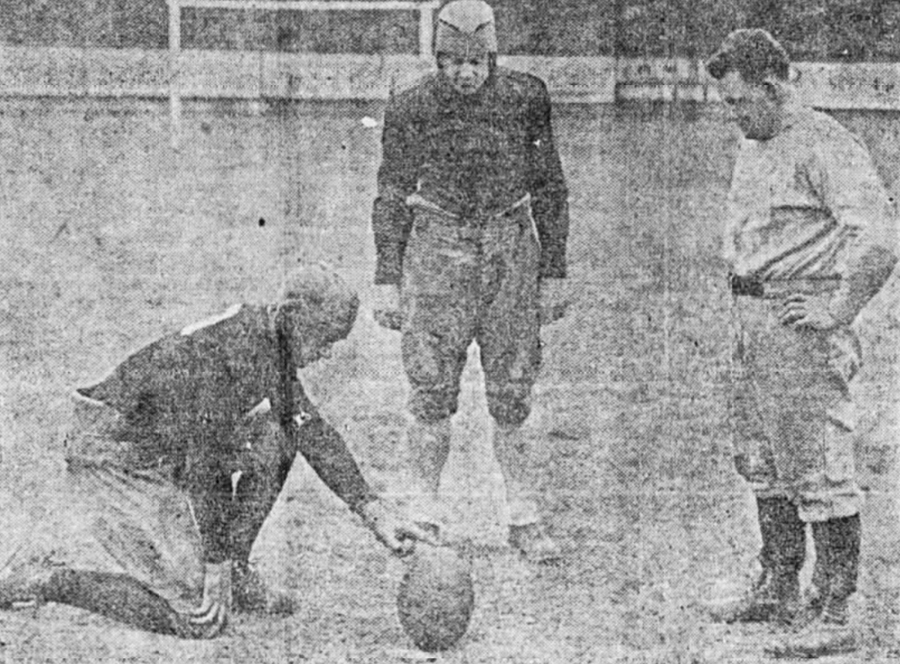
Albert Spurlock in center, and Coach Gurly on the right.
His later career demonstrated his commitment to education. Instead of trying to play sports professionally (his career came years before the creation of the NFL), he first coached, then served in the Army Air Corps during WWII, before working a few years for map-maker Rand McNally. Then he came back, spending almost a quarter-century as Education Coordinator for the Catawba County School System.
This athlete would have made a tremendous Olympian. He starred, not only in football, but basketball, baseball and of course, track during his studies at Lenoir-Rhyne. Today, Spur is enshrined in the Catawba County Sports Hall of Fame, who refer to his abilities as “legendary.” He was all that and more. Albert Spurlock was a person who aspired to something beyond which he could easily attain. He reached for knowledge for its own sake, which made him a better human being.


